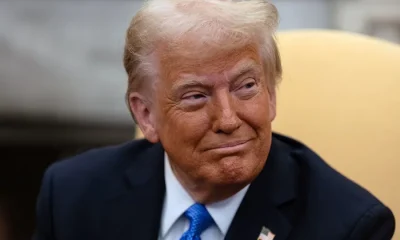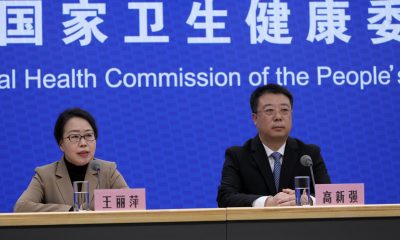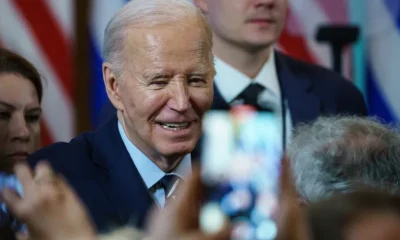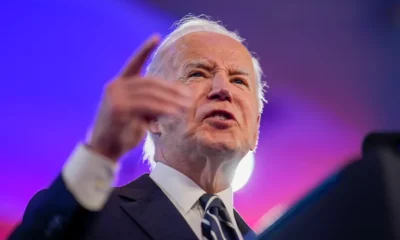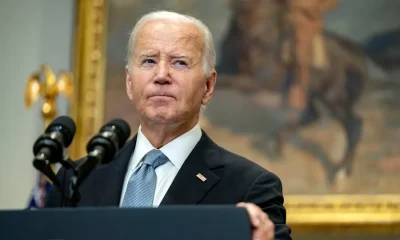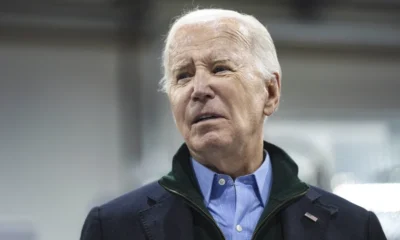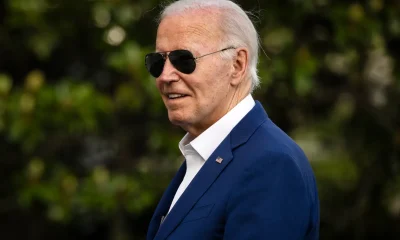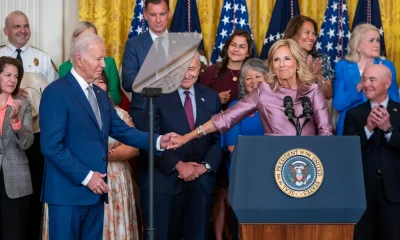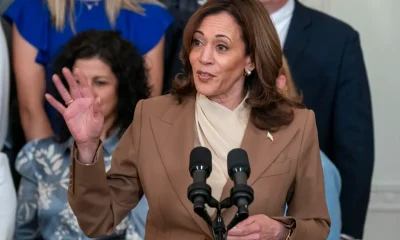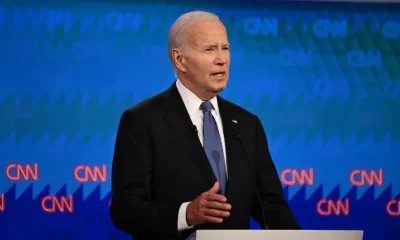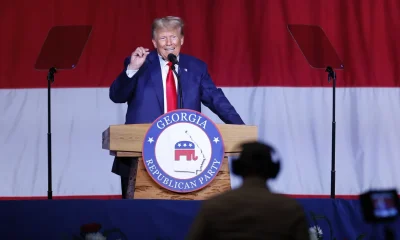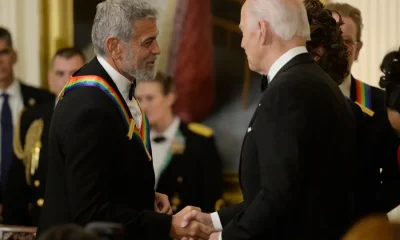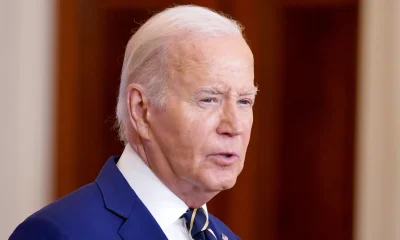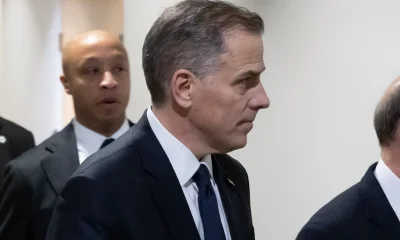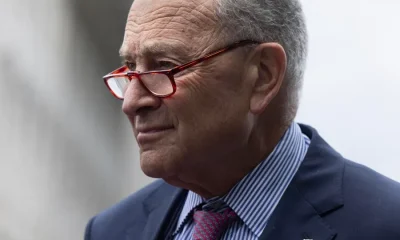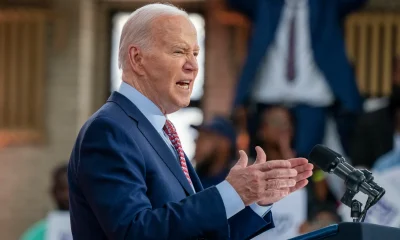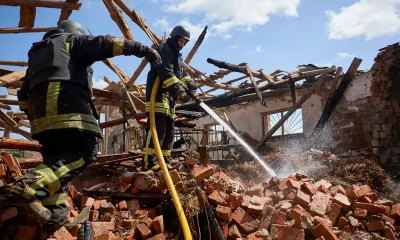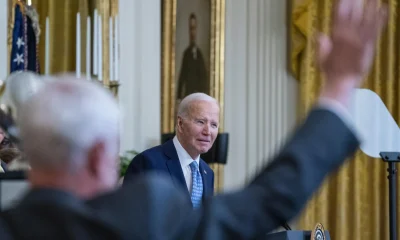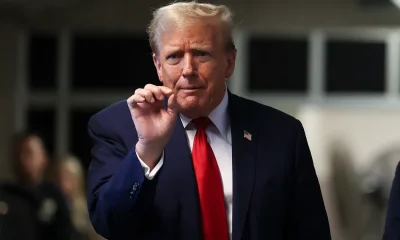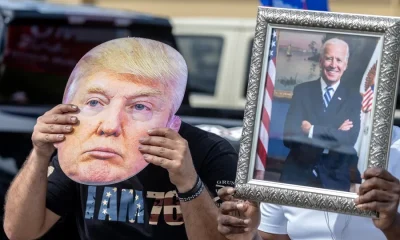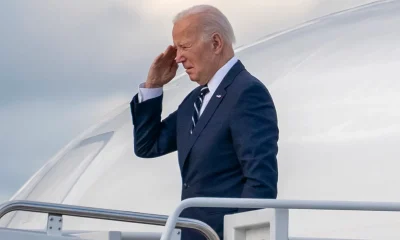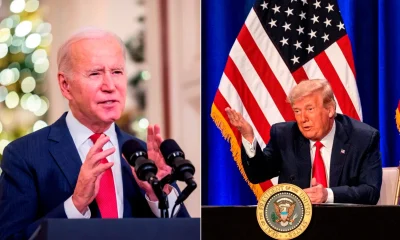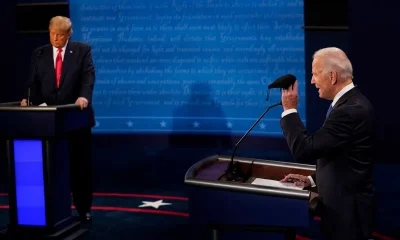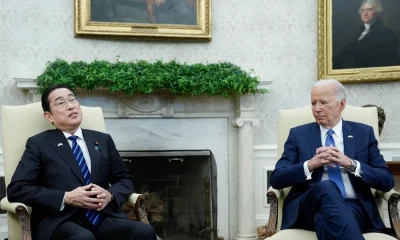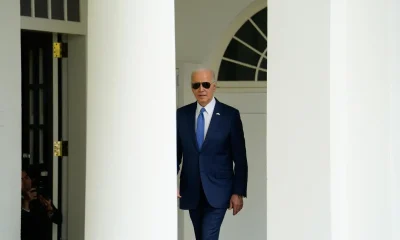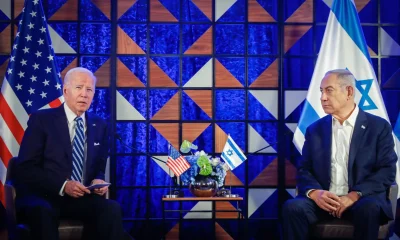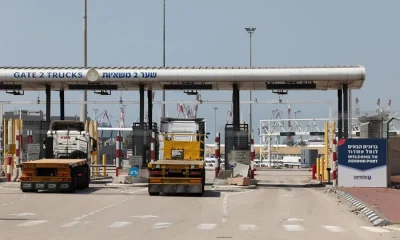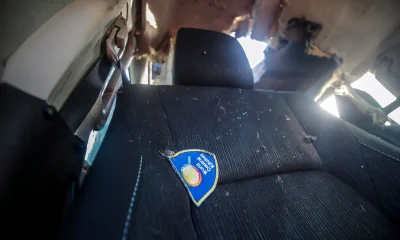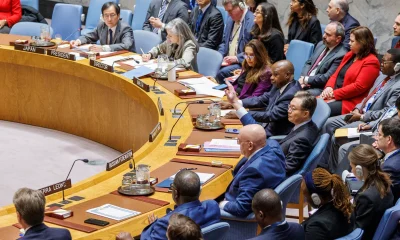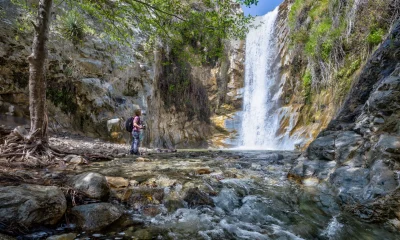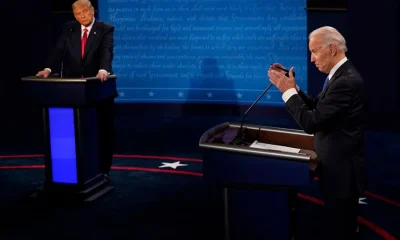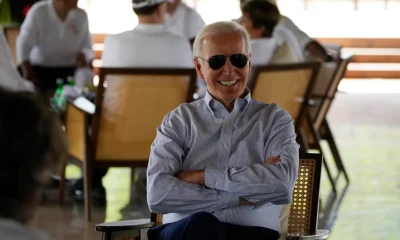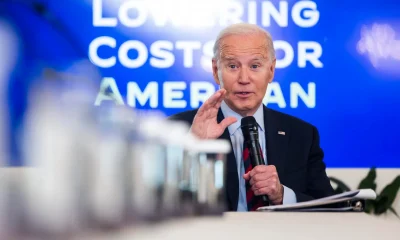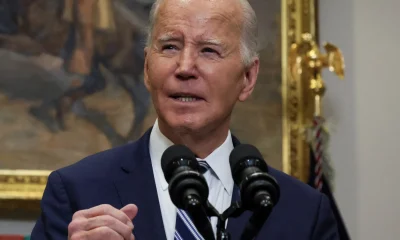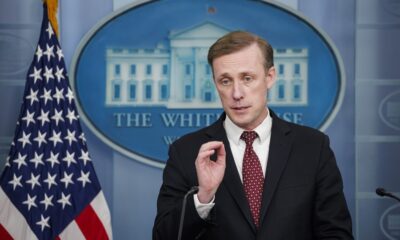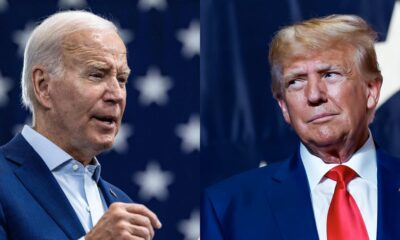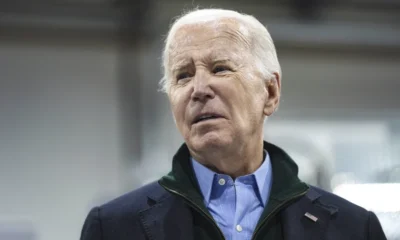International
Biden monitoring China Covid unrest as US rallies pop up
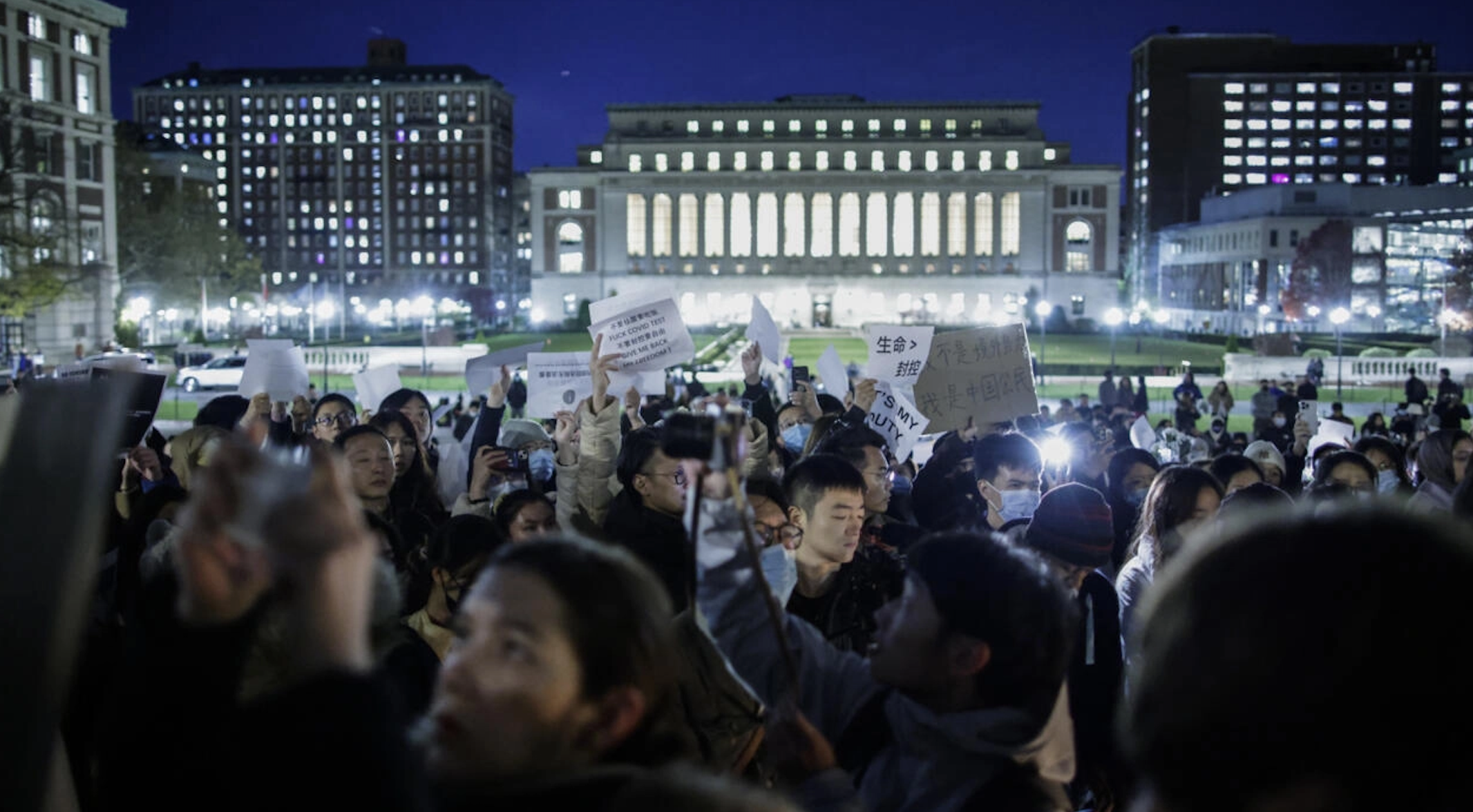
| By AFP | Sebastian Smith and Beiyi Seow |
US President Joe Biden is monitoring unrest in China by protesters demanding an end to Covid lockdowns and greater political freedoms, the White House said Monday, as rallies popped up in solidarity around the United States.
The comments came after hundreds of people took to the streets in China’s major cities over the weekend, in a rare outpouring of public frustration that has spread to international Chinese-speaking communities.
“He’s monitoring this. We all are,” National Security Council spokesman John Kirby told reporters Monday.
Kirby would not describe Biden’s reaction to the demonstrators’ demands, saying: “The president’s not going to speak for protesters around the world. They’re speaking for themselves.”
But he stressed US support for the demonstrators’ rights.
“People should be allowed the right to assemble and to peacefully protest policies or laws or dictates that they take issue with,” Kirby said.
Earlier Monday, the US State Department implied that China’s strict lockdown policies were excessive, with a spokesperson saying “it’s going to be very difficult” for China to “contain this virus through their zero-Covid strategy.”
Discontent has been brewing for months in China over harsh coronavirus control measures, with relentless testing, localized lockdowns and travel restrictions pushing many to the brink.
That frustration was brought to a head after a deadly fire broke out last week in Urumqi, the capital of northwest China’s Xinjiang region, with many blaming Covid-19 lockdowns for hampering rescue efforts.
Around the United States, notably on university campuses, rallies sprang up Monday in support of the protests in China.
‘Solidarity’
Around 100 people, many of them students, gathered in Washington to call for greater freedoms and mourn those who died in Urumqi.
“(Officials) are borrowing the pretext of Covid, but using excessively strict lockdowns to control China’s population. They disregarded human lives,” said a Chinese student surnamed Chen.
“I came here to grieve,” the 21-year-old added.
Referring to protests across China, another student Zhou, 22, said: “My friends and I never imagined things would develop so rapidly.”
Attendees held white sheets of paper symbolizing censorship and chanted slogans including “Freedom of speech! Freedom of assembly! Tear down the firewall!”
In the evening, similar rallies were held in New York, on the campus of Columbia University, as well as at North Carolina’s Duke University.
Like at the protests in China, some in the crowds called for the resignation of Chinese leader Xi Jinping, who recently secured a historic third term while consolidating power over the country’s billion-plus population.
Dozens of people gathered at the University of California’s Berkeley campus chanted in Mandarin “Xi Jinping, step down!”
There were also shouts in English of “Free China!,” while one protester was seen carrying a drawing of Xi with the slogan “Death to the dictator.”
Earlier on Monday in Washington, around 25 members of the Uyghur community gathered outside the State Department, and called on the United States and other democracies to apply further pressure on Beijing.
“We want them to issue a formal statement condemning the loss of lives, Uyghur lives, and to call for full transparency on the real number of deaths that occurred,” said Salih Hudayar, a Uyghur-American who campaigns for Xinjiang independence.
“We’re hoping that the international community supports these protesters in demanding accountability from the Chinese government,” he added of protests in China.
International
Spain’s irregular migrant population rises to 840,000, study finds
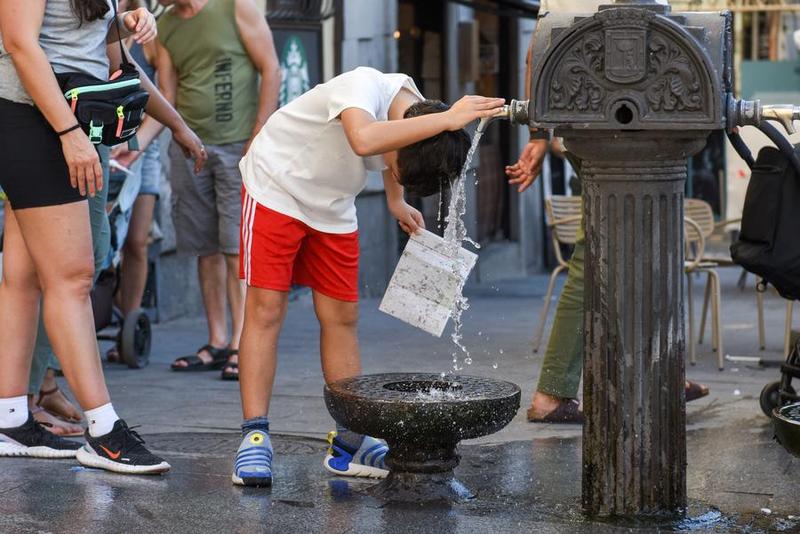
The number of migrants living in Spain without legal residency status continues to rise and has reached 840,000 people, with 91% originating from the Americas, particularly Colombia, Peru and Honduras, according to a report by the Spanish think tank Funcas (Foundation of the Savings Banks).
An estimated 17.2% of the non-EU foreign population living in Spain is in an irregular administrative situation. The estimate is based on the gap between the number of foreign residents effectively living in Spain, according to the National Statistics Institute (INE), and those who hold a residence permit, benefit from international protection, or are in the process of obtaining it.
The data, as of January 1, 2025, point to a notable and sustained increase in irregular migration since 2017, when the estimated figure stood at around 107,000 people, representing 4.2% of the non-EU population residing in Spain.
By origin, migrants from the American continent stand out, totaling around 760,000 people, or 91% of all irregular migrants. Colombians account for nearly 290,000, followed by Peruvians with almost 110,000, and Hondurans with about 90,000. Migrants from Africa (50,000), Asia (15,000) and Europe (14,000) trail far behind.
The figures predate Spain’s latest immigration regulation reform, which came into force in May 2025 and introduces measures to ease access to legal status through residency ties. According to Funcas, the reform would, in principle, tend to reduce the number of migrants in an irregular situation.
International
Historic snowstorm paralyzes Toronto after 60 centimeters of snow

Toronto, Canada’s largest city and the fourth most populous in North America, was largely paralyzed on Monday after a historic snowstorm dumped up to 60 centimeters of snow and sent temperatures plunging to -15 degrees Celsius, authorities said.
Late Sunday, as the scale of the snowfall became clear, city officials declared a climate emergency, triggering extraordinary measures including parking bans on several major streets to facilitate snow removal operations.
Toronto’s public transit authority reported that while some buses remain immobilized, subway and streetcar services are operating with relative normality, though localized disruptions may occur.
A similar situation is affecting the city’s commuter rail network, which remains operational but is experiencing significant delays on its main routes due to the severe weather conditions.
International
Venezuela frees at least 80 political prisoners, NGO says
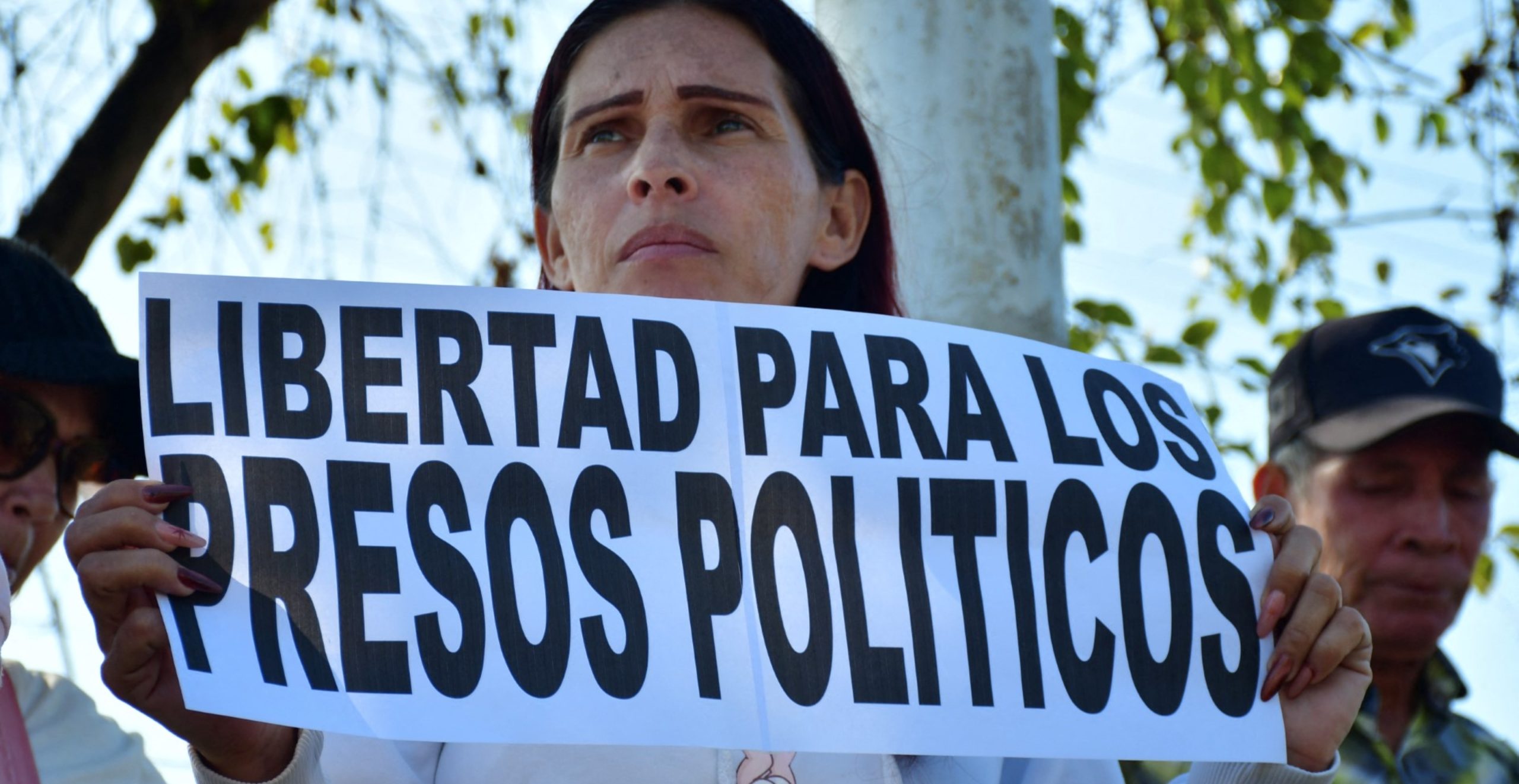
At least 80 political prisoners were released on Sunday across Venezuela, human rights group Foro Penal reported, as the broader process of detainee releases continues at a slow pace under the interim government.
Foro Penal’s director, Alfredo Romero, wrote on social media platform X that verified releases took place nationwide and that the figure could rise as more confirmations are completed.
Attorney Gonzalo Himiob, also from Foro Penal, said the excarcelations occurred during the early hours of the day and emphasized that the number is not yet final pending further verification.
The releases are part of a series of steps announced by Venezuela’s interim leader, Delcy Rodríguez, who took power after the capture of former President Nicolás Maduro in a U.S. military operation on Jan. 3, 2026. Rodríguez has pledged a significant number of liberations but has been criticized by opposition groups and rights organizations for the slow and nontransparent nature of the process.
So far, the Venezuelan government reports that 626 detainees have been freed since December, though independent counts by human rights groups suggest the number of actual political prisoner releases is lower and that many remain behind bars.
Families of those still detained have maintained vigils outside prisons, hopeful for further releases even as broader concerns about political imprisonment and due process persist.
-

 Central America5 days ago
Central America5 days agoMazatenango Carnival cancelled amid State of Siege in Guatemala
-

 International5 days ago
International5 days agoTrump to invite Venezuela’s interim president Delcy Rodríguez to Washington
-

 International5 days ago
International5 days agoMarkets rise as Trump halts Europe tariffs and floats Greenland agreement framework
-

 International5 days ago
International5 days agoVenezuela’s interim president predicts 37% increase in revenues for 2026
-

 International3 days ago
International3 days agoTrump-Era Defense Plan Prioritizes Border Security and Scales Back Global Commitments
-

 Internacionales4 days ago
Internacionales4 days agoMajor winter storm threatens “catastrophic” ice and snow across much of the U.S.
-

 Central America4 days ago
Central America4 days agoGuatemala’s president rules out negotiations with inmates after prison riots
-

 International5 days ago
International5 days agoFour minors killed in deadly clash between FARC dissidents in Colombia’s Amazon
-

 International5 days ago
International5 days agoJapan reopens Kashiwazaki-Kariwa Plant despite public concerns
-

 International3 days ago
International3 days agoBogotá and Quito Seek Dialogue After Tariffs and Power Cut Escalate Tensions
-

 International4 days ago
International4 days agoGuatemala considers sending high-risk gang members to military prisons
-

 International2 days ago
International2 days agoDelcy Rodríguez seeks political agreements after Maduro’s ouster
-

 International4 days ago
International4 days agoRights group says over 5,000 killed in Iran protests, mostly civilians
-

 International2 days ago
International2 days agoFederal immigration agents kill man in Minneapolis, sparking protests and outrage
-

 International18 hours ago
International18 hours agoHistoric snowstorm paralyzes Toronto after 60 centimeters of snow
-

 International18 hours ago
International18 hours agoSpain’s irregular migrant population rises to 840,000, study finds
-

 International18 hours ago
International18 hours agoRights group says nearly 6,000 killed in Iran protest crackdown
-

 Central America18 hours ago
Central America18 hours agoGuatemala seizes over a ton of cocaine hidden in flour at Pacific port
-

 International18 hours ago
International18 hours agoVenezuela frees at least 80 political prisoners, NGO says
-

 International18 hours ago
International18 hours agoEU launches new probe into X over AI-generated fake nude images
-

 International19 hours ago
International19 hours agoFrance debates ban on social media for children under 15
-

 International19 hours ago
International19 hours agoSevere winter storm grips U.S., leaves multiple dead as extreme cold persists

























